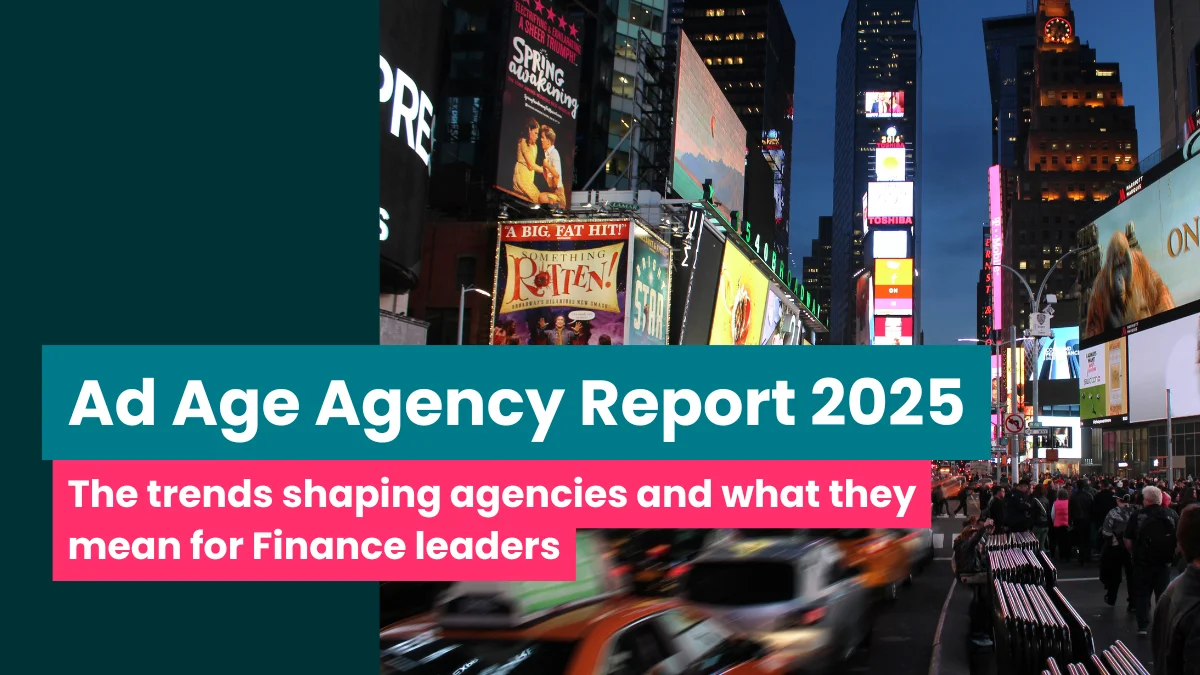 Contact Us
Contact Us
The Ad Age Agency Report 2025 outlines three primary shifts affecting the marketing services landscape. These include the increasing integration of artificial intelligence into workflows, the expanding scope of client expectations and the need for agencies to operate more efficiently with greater precision. This summary distills those insights and examines their implications for finance professionals working in the U.K. and U.S. media sector.
Artificial intelligence is becoming a central part of agency operations. It supports tasks ranging from automated content development to data-driven decision-making in campaign planning. Agencies using AI strategically can scale output and personalise marketing at a level not previously possible. However, this transformation requires careful management to maintain the human creativity that underpins original brand work. The industry is adapting by integrating AI into existing teams rather than replacing core creative roles.
Clients are increasingly expecting agencies to deliver holistic solutions that span creative, media, data analytics and commerce. Rather than selecting different partners for each function, many organisations now prefer agencies that provide integrated support across their entire marketing funnel. This shift is also raising expectations for responsiveness and strategic insight. Agencies are restructuring to deliver more seamless client experiences and are investing in multidisciplinary teams to meet this demand.
With tighter marketing budgets and a focus on measurable results, agencies are being pushed to deliver better outcomes with fewer resources. There is a growing emphasis on project-based work and outcome-based compensation models, replacing traditional long-term retainers. To adapt, agencies are streamlining processes, using technology to automate repetitive tasks and optimising staffing models. These changes have allowed many firms to increase revenue while operating with smaller teams, though the long-term effects on talent retention and creativity remain areas to watch.
These industry changes present both challenges and opportunities for finance leaders in marketing services. Investments in AI and technology must be guided by clear metrics to ensure return on investment. Finance teams are also playing a larger role in shaping organisational structures that support integrated services and performance-driven pricing models. Budgeting must now accommodate innovation while maintaining financial discipline. Additionally, managing project finances, workforce flexibility and efficient cash flow are becoming essential capabilities. Finance professionals should also position themselves as strategic partners within their agencies, contributing to growth planning, risk assessment and investment strategy. By aligning financial practices with the evolving needs of clients and internal teams, finance leaders can help drive long-term value creation in a rapidly changing landscape.
We’re seeing a exponential increase in demand for finance professionals who can help our clients meet their ESG/sustainability goals, and ensure that they can not only comply with current and upcoming legislation but also meet the demands from clients and customers for accurate data. After a hugely successful leadership event earlier this year, we wanted…
Read MoreFollowing on from Grant Thornton's latest CFO survey, we explore strategies for forging stronger relationships between CFOs and CHROs.
Read MoreSucceeding In A Startup Finance Leadership Interview: Duncan Burgess, Startup/Scaleup CFO
Read MoreThe last few years have been a huge challenge for HR & Talent leaders as they tackled the cultural and organisational upheavals triggered by Covid whilst also attempting to hire and retain talent in a fiercely competitive market. Now, AI-driven advances are set to present a new set of challenges which will not only…
Read MoreManaging mental health in the workforce during these disrupted times is one of the key challenges for HR leaders. Check out the takeaways from our latest webinar on how companies can tackle the issues.
Read More